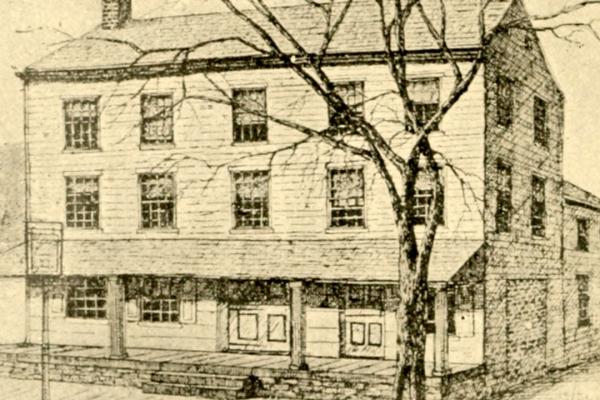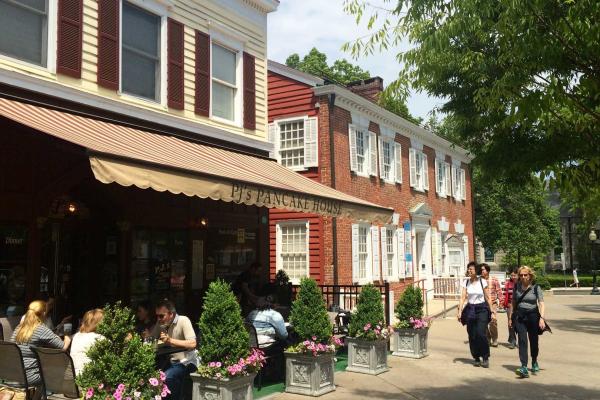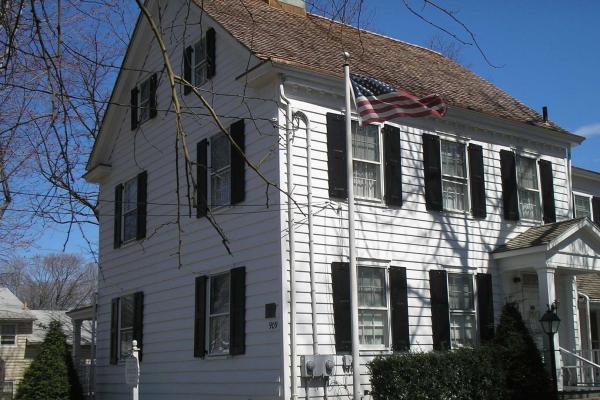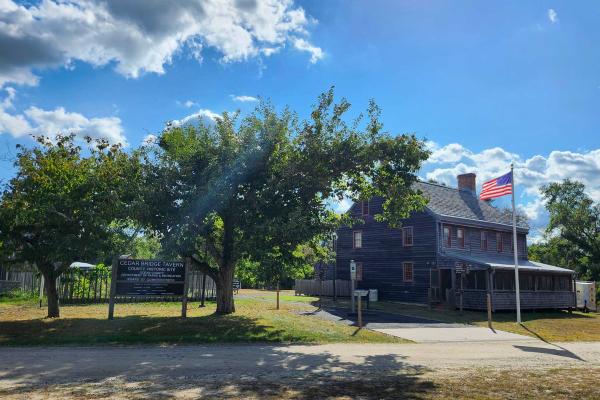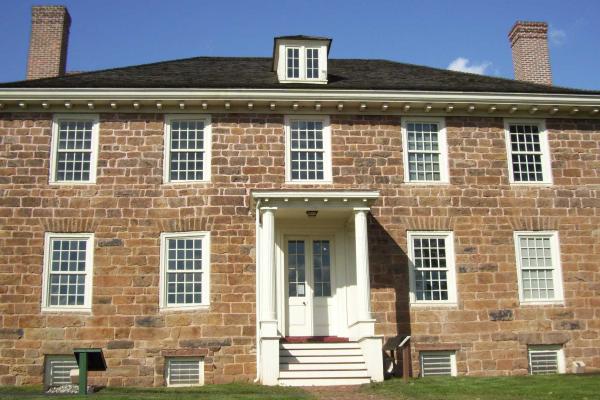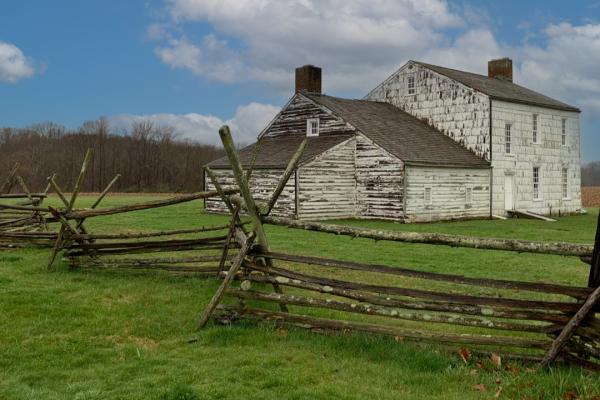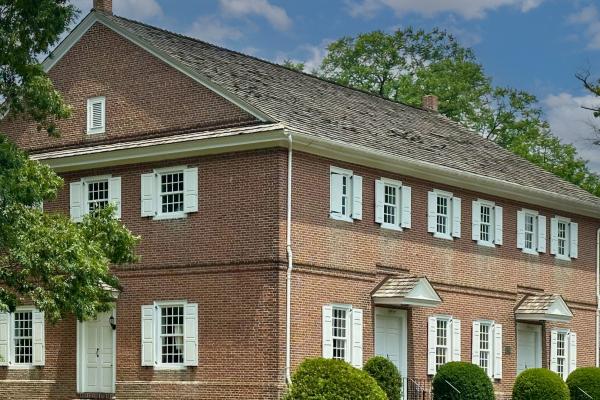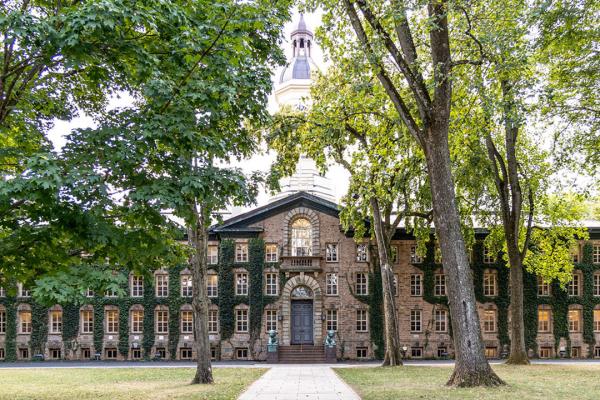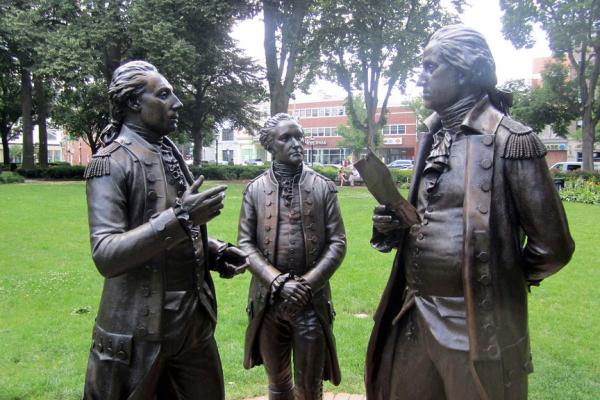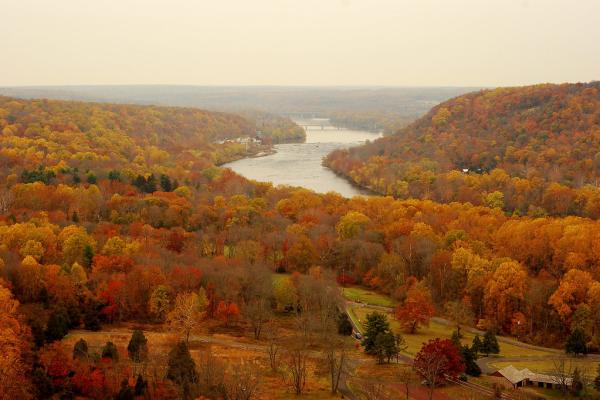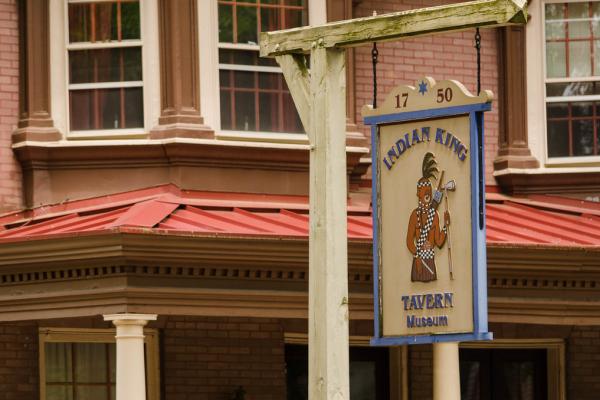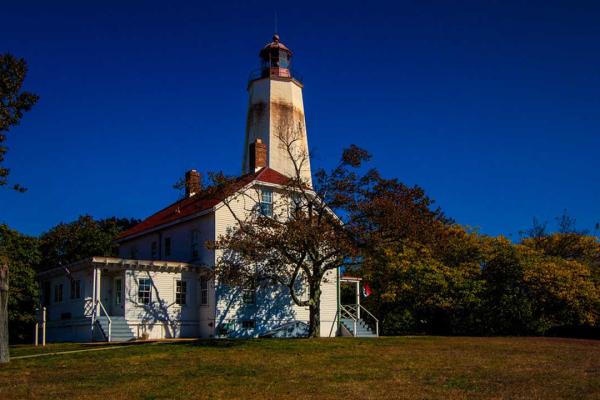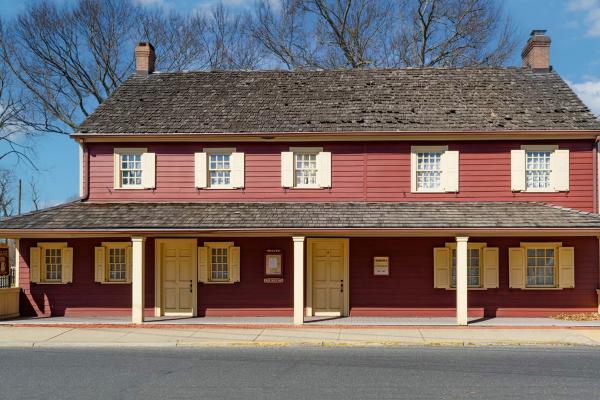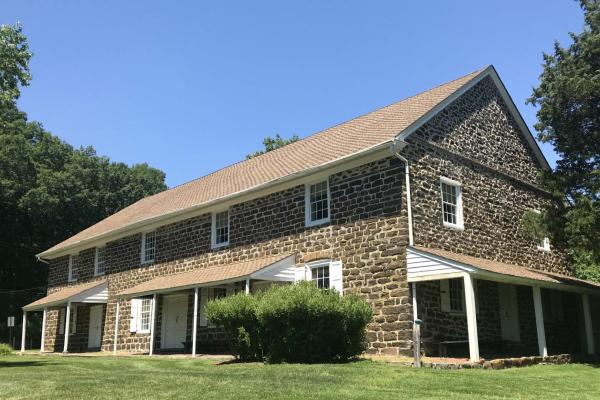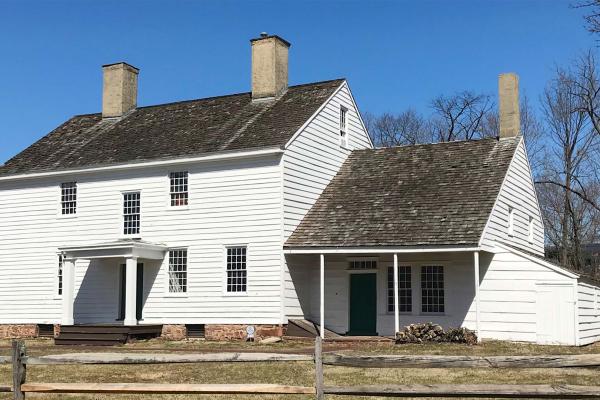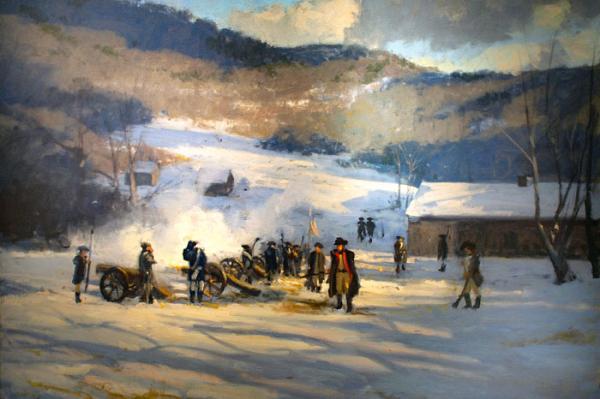The Arnold Tavern, constructed in the mid-18th century, served as Washington's headquarters from January - May 1777
A hidden gem in the borough of Princeton, the Bainbridge House was constructed in the mid-1760s and stands as a hallmark of colonial architecture...
The Caldwell Parsonage is a site of tragedy outside of the battlefield of Connecticut Farms & Springfield. The events that transpired that day still...
This Revolutionary War landmark withstood fierce fighting during the Battle of Springfield. A British cannonball struck the home — and the scar...
On December 27, 1782, Patriot forces under Captain Richard Shreve and Captain Edward Thomas were surprised at a tavern by Loyalist raider Captain John...
The Cornelius Low House, constructed in 1741, stands today as one of the finest examples of Georgian architecture in New Jersey.
This unassuming home, owned by the Covenhoven family, was requisitioned by British General Henry Clinton in the days prior to the monumental Battle of...
An ordinary farmhouse within Monmouth, it became a hotspot during the Battle of Monmouth as Charles Lee mounted a defense against advancing British...
New Jersey militia and Continentals assaulted a British column in-and-around these grounds in mid-June of 1778, just days before a continued series of...

- parking
- accessible_parking
- wheelchair_accessible
- restrooms

- parking
- accessible_parking
- wheelchair_accessible
- restrooms

- parking
- accessible_parking
- wheelchair_accessible

- parking
- accessible_parking
- restrooms
- pet_friendly
Liberty Trail History Makers
The Revolutionary War was a war unlike any other — one of ideas and ideals, that shaped “the course of human events. Explore the history and personalities from this pivotal time in American history.Carl von Donop, a Hessian colonel, sought glory in the American Revolution but blundered at Trenton—possibly distracted by a "beautiful widow." To redeem himself, he led a doomed assault on Fort Mercer in 1777, suffering fatal wounds. Arrogant and unpopular, his American dream ended in defeat by the Delaware River.
George Weedon, a Virginia officer in the French and Indian War and the American Revolution, played pivotal roles at Trenton and Yorktown. Known for his leadership and his tavern as a revolutionary meeting spot, he remained influential in post-war Virginia until his death in 1793.
A self-educated bookseller and artillery expert, Knox led artillery efforts that forced the British to evacuate Boston and later serving as a trusted officer under General Washington and the first U.S. Secretary of War.
Colonel Samuel Griffin, a Virginia lawyer and officer in the Continental Army, played a key role in the 1776 campaign, leading militia units in New Jersey and engaging the Hessians near Mount Holly. Stricken by illness during critical battles, he later served as mayor of Williamsburg and a U.S. congressman after the war.

